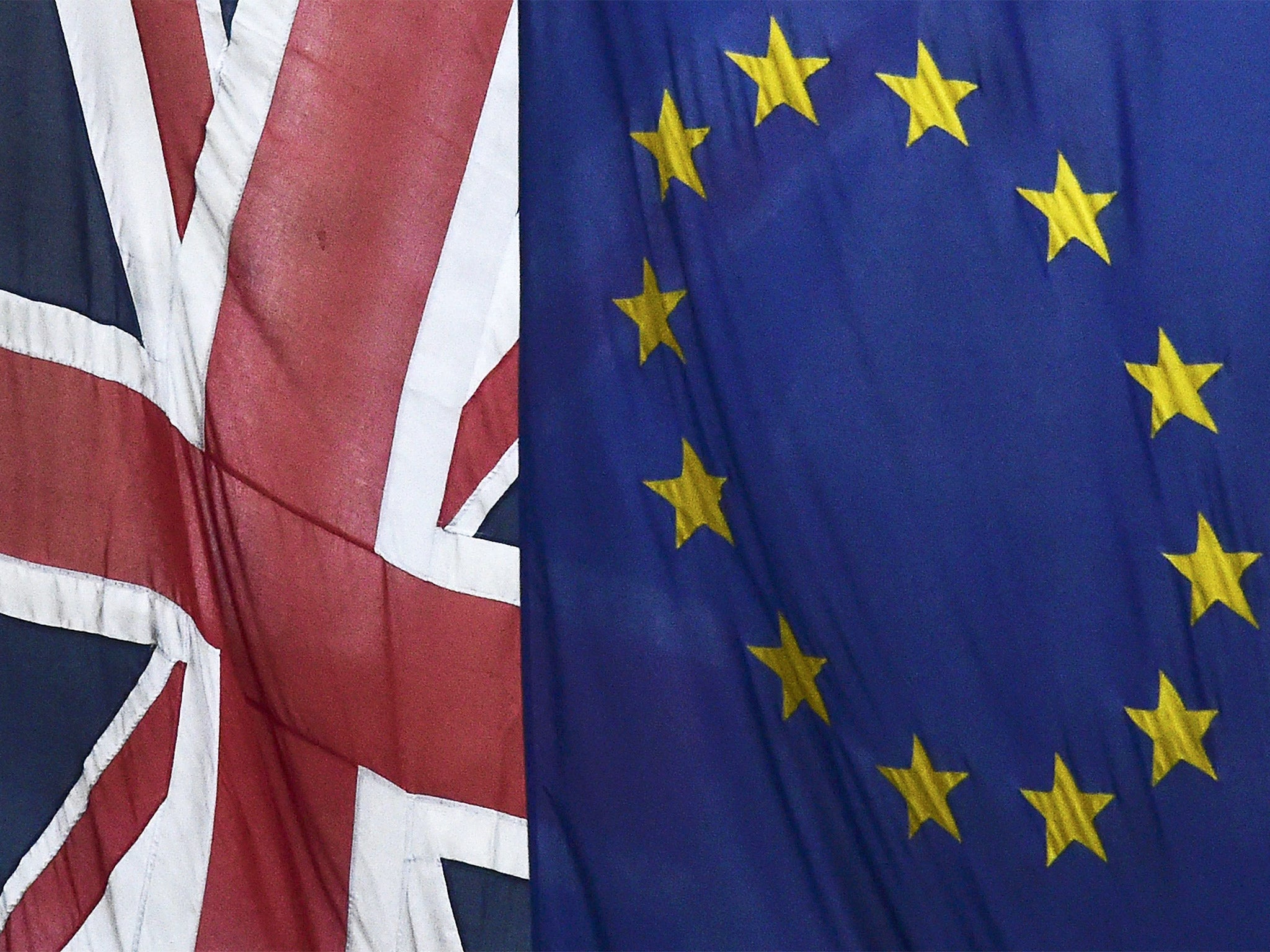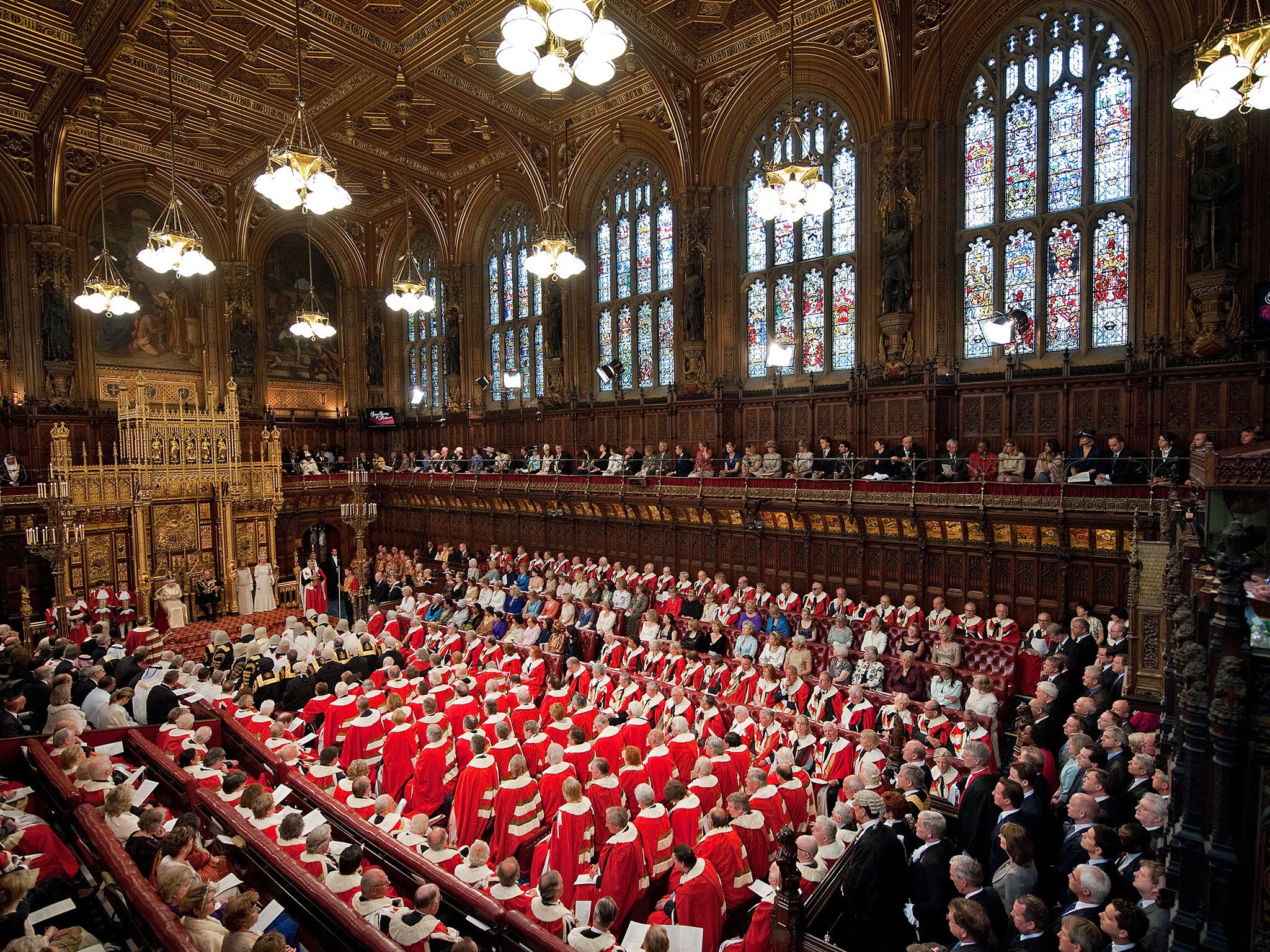EU referendum: House of Lords vote in favour of allowing 16 and 17-year-olds to take part
Peers argued that lowering the voting age would help to engage teenagers in politics

Your support helps us to tell the story
From reproductive rights to climate change to Big Tech, The Independent is on the ground when the story is developing. Whether it's investigating the financials of Elon Musk's pro-Trump PAC or producing our latest documentary, 'The A Word', which shines a light on the American women fighting for reproductive rights, we know how important it is to parse out the facts from the messaging.
At such a critical moment in US history, we need reporters on the ground. Your donation allows us to keep sending journalists to speak to both sides of the story.
The Independent is trusted by Americans across the entire political spectrum. And unlike many other quality news outlets, we choose not to lock Americans out of our reporting and analysis with paywalls. We believe quality journalism should be available to everyone, paid for by those who can afford it.
Your support makes all the difference.Sixteen and 17 year olds could be allowed to take part in the referendum on Britain’s membership of the European Union following a landmark vote in the House of Lords in favour of extending the franchise.
The government, which strongly opposed the move, suffered a huge defeat on the issue as peers argued that lowering the voting age would help to engage teenagers in politics.
The Lords voted by 293 to 211, a majority of 82, to back the reform as they delivered the latest in a succession of blows to the Conservative legislative programme. Ahead of the vote, David Cameron’s spokesman repeated his opposition to lowering the voting age.
The scale of the defeat leaves him with a dilemma over whether to try to reverse it in the Commons or to whether to accept defeat and agree to widen the referendum franchise.
Allowing 16 and 17 year olds to participate could be a boost to the pro-EU campaign as younger voters are viewed as more likely to support Britain’s continued membership.
That would enable about 1.5m younger voters to take part in the referendum, which Mr Cameron is committed to holding by the end of 2017.
Supporters of the move pointed to the decision to allow 16 and 17 year olds to vote in last year’s referendum on Scottish independence as a greater proportion of them took part than 18 to 24 years olds.
One effect of widening the franchise could be to delay the date of the referendum as electoral staff would have to enrol newly-qualified voters. The Electoral Commission is understood to have warned the government that the process could take as much as 12 months, which would deal a heavy blow to the prospect of a referendum in the first half of next year.
Mr Cameron is thought to favour an early vote, while some Eurosceptics would prefer the “Brexit” vote being held in 2017, allowing them to build the case for quitting the EU.

Lord Faulks, the Justice Minister, argued that the move could be viewed as favouring one side in the campaign.
He said: “We wanted to avoid any allegations of interference and we fear changing the franchise, including this particular change, could be seen as doing exactly that, and could seriously undermine the legitimacy of the referendum.”
But Labour and Liberal Democrat peers joined forces to force through the amendment to the EU Referendum Bill, which the government hopes to get on to the statute book by January.
The Labour peer Baroness Morgan of Ely said evidence from Norway and Austria showed that the younger people started voting, the more interest they took in politics.
“At 16 they are taking life-changing decisions on the future direction of their lives, they are deciding on which A-levels to take, or which vocational courses to follow, and if they find someone they want to marry they can even do that,” she said.
Lord Hamilton of Epsom, a former Tory minister, claimed the move was an attempt to “tilt the whole playing-field” in favour of the pro-EU camp.
Lord Blencathra, another former Conservative minister, said Parliament had already prevented 16 and 17 year olds from many things, including watching pornography, buying tobacco and using sunbeds.
“We cannot say young people should be permitted to vote at 16 because they are more aware and mature and then push up the age to 18 for almost everything else they can do,” he said.
But Lord Tyler, a Lib Dem peer, said the same arguments being used against extending the franchise to 16 and 17 year olds were used in the past to try to prevent women voting.
Join our commenting forum
Join thought-provoking conversations, follow other Independent readers and see their replies
Comments